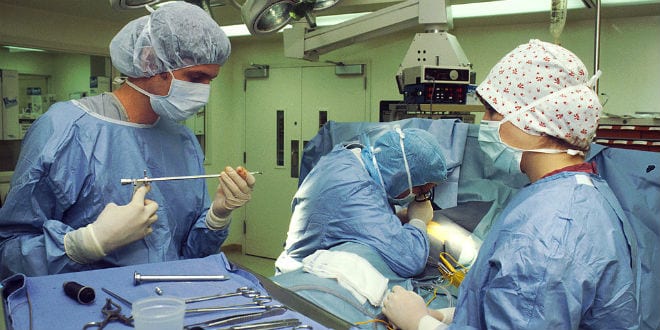Although cancer is the number-one cause of death in Israel (unlike many countries, where cardiovascular disease is still at the top), survival rates among oncology patients here are on the rise.
According to the statistics provided by the Israel Cancer Association (ICA), the relative five-year survival rate of invasive cancers among those diagnosed between 2011 and 2017 rose 13% to 20% compared to figures between 1996 and 2000.
Five-year survival rates in Jewish men increased from 56% to 67% in Jewish men, from 63% to 71% in Jewish women; from 48% to 54% in Arab men; and from 61% to 70% in Arab women. In all the time periods examined, relative survival among women was higher than that among men, and that of Israeli Jews was higher than that among Israeli Arabs.
The better chances for survival are dramatic and important, said ICA deputy chairman Miri Ziv, and they are due to early diagnosis of cancers and improved treatments. The ICA is holding its annual Knock on the Door campaign to raise money for the association, which does not receive any government funding. School pupils knock on doors to collect donations, and contributions are also given via phone and the ICA’s website. The annual campaign is now in its 59th year.
Among the ICA’s activities are the promotion of cancer research; initiating and assisting in the implementation of national prevention and early diagnosis programs; funding standards for nurses, psychologists, social workers and other cancer care professionals; operating support centers for cancer patients and their families; helping sick children in completing their schoolwork due to their absence from classes; organizing and producing public information activities to raising awareness of risk reduction and early diagnosis; and a wide range of other activities.
Meanwhile, cancer studies published in Israel and abroad in the past year have revealed interesting findings. An ICA-sponsored at Sheba Medical Center in Ramat Gan near Tel Aviv and Tel Aviv University suggests a link between pregnant women’s exposure to air pollution and birth defects, premature births and even cancer among their children.
The study was based on a cohort of 220,805 babies born in Israel between 1997 and 2004. A link was found between exposure during pregnancy to sulfur oxides – which originate from vehicle and chimney exhaust pipes of power plants and industry, and nitrogen oxides from coal and industrial combustion in power plants and refineries – and an increase in the childhood cancer risk.
The study is the first in Israel to examine the effect of exposure to pregnancy air pollution on childhood cancer. Further studies are needed to reinforce or reject the observed possible relationship, including more accurate measurement of exposure and larger sample size, the researchers said, as this information is essential for decisionmakers to support action to reduce air pollution.
Another study, this one carried out at the US National Institutes of Health and published in the June 2019 edition of the journal Medicine and Science in Sports and Exercise, found that exercise reduces the risk of adults getting cancer and raises the chances for recovery. The findings showed a statistically significant association between high-intensity and low-intensity exercise in healthy individuals, and a decreased risk of invasive cancer of several types – bladder cancer (15%), breast (12% to 21%), colon (19%), uterine (20%), esophageal (21%), stomach (19%) and kidney (12%).
The concluded that performing regular exercise at medium to high intensity brings about a lower risk of contracting various types of cancer and a higher chance for recovery.
Finally, research published last may in the journal JNCI Cancer Spectrum found that poor nutrition poses the same cancer risk as excessive alcohol consumption.
Researchers from several leading US universities, including Harvard, as well as Cambridge University in England, looked at the impact of daily consumption of seven foods – fruits, vegetables, whole grains, processed meat, red meat, milk, and sweetened beverages – on the risk of various cancer. A representative sample of 5,000 American adults 20 years of age or older was used for a prospective meta-analysis of cancer incidence. About 80,000 cases of cancer in the US were attributed to poor nutrition (5.2% of new cases of adults aged 20 and over).
Colorectal cancer was ranked first among other cancers in the context of poor nutrition (38.3% of cases), oral and pharyngeal cancer second (25.9% of cases), and gastric cancer third (6.8% of cases).
Low consumption of whole grains (less than 125 grams per day) was linked with the highest number of new cancers, followed by low consumption of milk and milk products; frequent consumption of processed meats; low fruit and vegetable consumption; and high consumption of red meat and sugary drinks. About 16% of cancer cases were blamed on obesity.
The researchers urged policymakers to raise the consumption of whole grains among the public through publicity and standard labeling of these food products.
***



